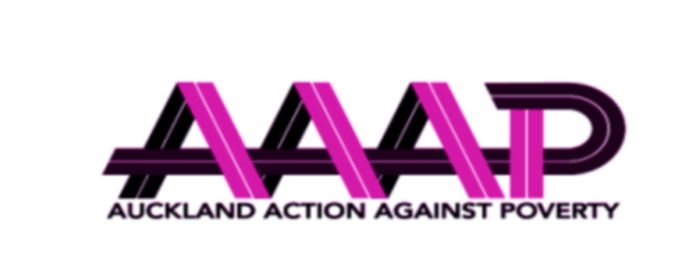The Government’s announced today that it will trial the provision of free lunches for 30 schools in order to reduce child poverty, hoping to expand it to 120 schools by 2021. Auckland Action Against Poverty welcomes the move towards the provision of free lunches for kids but warns that the limited targeting of the scheme and low benefit levels won’t address core issues of food deprivation and poverty.
“In order to put a dent on the record number of food grants by Work and Income the provision of free lunches need to be universal. If the Government wants to lift families out of poverty they need to address below the poverty benefit levels and lift them by at least 47% as recommended by the Welfare Expert Advisory Group”, says Ricardo Menendez March, Auckland Action Against Poverty Coordinator.
“Hardship grants have almost doubled from June last year. In the quarter of June 2019 there were 229,132 food grants needed by families across Aotearoa, compared to 137,424 last year. This is a direct result of increased levels of food poverty in Aotearoa. Work and Income has not changed its policy around food grant entitlements, while rent prices and the cost of living across the country continue to rise.
“The Government can’t address child poverty without fixing adult poverty. While we support the move towards free lunches for kids, we are concerned that the Government continues leaving their parents in poverty.
“The targeted approach by Government of the free lunches scheme is a direct result of their fiscally conservative approach to policy. The Government can afford to ensure every kid in Aotearoa has food in school and parents receive enough each week to get by, but it is held back by their Budget Responsibly Rules which limits spending and debt intake.
“We are calling on the Government to be brave and serious about ending poverty by universalising the provision of free lunches in school and increase core benefit levels. The current approaches to end poverty won’t address the chronic underfunding of our public services and welfare system.






The AAAP are correct in its view that lunches in schools must be universal, but not for the reasons it says. They say universality needs to be across the board to help address poverty levels. I’d say the need to do that should be more about steering remedies away from widening the cultural divide between the poor and the well off and shunning the institutionalisation of how basic needs are met according to financial resources. We saw this in the early 1990s when food banks emerged as a response to the reforms of the Bolger/Richardson/Shipley government. Now we have MSD referrals to food banks as an accepted part of their practice which is just hideous. Our 1938 social security legislation was introduced as a rights-based method of income-redistribution aimed to help dispense with people relying on charity just to feed their kids. There’s currently a very real risk that the way we deal with homelessness is going down the same road with government hell-bent on acquiring “facilities” with “beds” as a way to address how the housing crisis tends to affect the poor. It’s difficult to criticise attempts like these to “help” the poor because of course food is better than no food and shelter is better than no shelter, but this government needs to look at how easy it is for the methods it sees as necessary to address immediate need to become so entrenched they’re impossible to change. So far many of those methods if left unchecked will highlight the very inequality the government thinks its addressing.
Facilities with beds – they’ll be bringing back the workhouse soon. Pick your oakum and we’ll let you have food and a bed
I heard some nasty NZders moaning about this policy on the radio, saying people will depend on our government if we do hand outs, yet we got outs in the 60s we got free fruit in kindergarten we got free milk and we got subsidized milk@ 4 cents a bottle we got hot chocolate for 2 cents a cup, yes 2 cents a cup we also had a mum at home waiting for us who had baked wow! many children don’t have this luxury anymore so why are people being so fucken nasty. I also remember our mutton was subsidized by our government in the 80s so we could afford it. We can prop up banks, SC finance company, and we can pay millions for mico plasma bovis people need to wake up in our country and stop being fucken selfish. I have no children my daughter is grown up but im paying for middle class (working for families) i dont care as long as people can care for their whanau. Lastly some NZers go free tertiary education.
Exactly, and what was good about it is that it was universal. There was no singling out of individuals because of who they were to be treated differently, like food in schools if you’re poor. Food in schools is a great idea but it must be across the board. It may well be about fed kids learning better, but it’s also about fostering a sense of community at schools and no doubt a whole bunch of other positive reasons that go with that. Limiting food in schools to the poor highlights and embeds inequality.
Comments are closed.